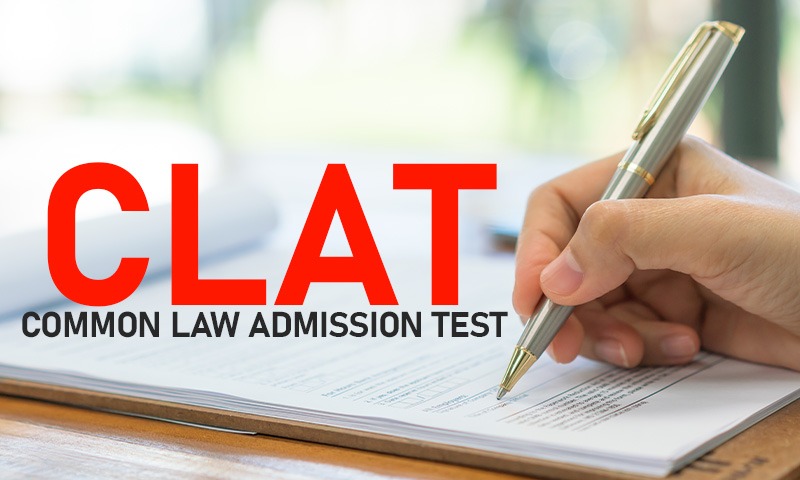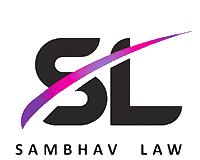30 Day plan to crack CLAT PG

In this guide, we essentially want you to focus on only 2 things.
- Your selective study
- Time management
The last 30 days to the paper will be the deal maker or breaker to your selection. It is simply in human nature that you will learn faster when the time is less.
So stop wasting time.
By wasting time we mean- avoid investing your time in unnecessary volume. At this point we cannot stress enough that you will have to make trade-offs.
And you will be required to do a double shift.
- Revision of your topics.
- Consume new knowledge
And you must strike a delicate balance between the two.
Set up a time table, in case you haven't yet.It is not a big deal, do it for one month, it will help you out greatly, in ways that we cannot explain by words.
Ideally make sure that you have at least allotted 2 hrs for your revision every day.
Revise all the important subjects.
We suggest-
- Day 1- Constitution
- Day 2- Criminal Law- CrPC, IPC and evidence law.
- Day 3- Family law and contracts (concepts and landmark cases)
- Day 4- Jurisprudence and Intl. Law. (reading and memory)
- Day 5- Misc subjects such as NI Act, Environmental Law etc.
- Day 6- Read recent case laws and news.
- Day 7- You can cover your backlog, or do the subjects that you are weak at.
It is very important that you set your priorities straight. Avoid studying subjects that are niche, do not have great weightage in the exam.
Ideally we would suggest not to pick up specialized subjects such as the Company law, IBC or arbitration until and unless they have some very groundbreaking observations in them.
Identify and refer to the important portions in every subject. On the designated day in your time-table please try to memorise some 10-20 judgements and try to write about what was held there, the significant contribution it has made to the law and later do follow up as to what is your accuracy (in identifying the correct judgement) and precision (as to what was ultimately held, how close or exact you can write)
In any case do write, writing will help you memorise what you did in a much better manner, than simply reading it. In any case, always remember, we can never remember how much we forgot! ;)
We at Sambhav Law have prepared a strategy guide on important subjects including some of the most important case laws- landmark and recent that we think can come in the exam for your help. Please, bhagwan ke liye unhe dekh lena.
Since there is a very probable chance that the upcoming exam will be very similar to the last exam, it is crucial that you attempt one mock test every day.
You can enroll in our courses.
If I were to tell you how to attempt the mocks- I would want you to be completely honest, do not do guesswork, attempt only what you think you are sure of.
The paper, I would remind you again, has a negative marking and guessworking often causes more damage than good. Mock papers are a simulation of the actual exam and the behaviour and approach that you will adopt here, will truly help in understanding your reaction to the actual paper.
In our papers, we try to create a balance that is similar to the pattern that CLAT PG has adopted. The questions have variable difficulty so that we are able to give you an accurate idea as to where you stand.
If you are able to get into the habit of doing mocks and when you get accustomed to how to work, you will be able grasp better, manage your time, you will be able to bail out on portions which you simply don't know.
We sincerely wish to help you, and by enrolling in our courses, you would enable us to help you better. We have done extensive research with past toppers, and experts on subject to come up with the perfect mix of paper.
We understand that you need a razor sharp focus, so in every question of our exam, we try to give to the point explanation to every question. By doing mocks you will come across cases that you might have had missed. We have covered questions on landmark judgements, recent judgements of the time period 2020-22.
In the CLAT PG competitive exam, it is not so much about attempting all the question and securing 90+ marks, it is about getting most of what you know correct and the threshold, as in one of our previous videos we have already highlighted that you only need around 55% marks to get into the top NLUs.
The following are the Dos and Don't for this upcoming paper, that we strongly suggest for the period of 30 days.
Do's
Dont's
Read the most important subjects
Do not try to pick up new subjects or overemphasise on one or two subjects, the paper will be a mix of all the subjects. It is just not worth it.
Chart a time table and study plan and stick to it.
Do not try to randomly open another subject in the middle of your study, stick and finish a topic before beginning another. Additionally, do not procrastinate.
Prepare short notes
Do not indulge into writing detailed explanations, it is simply not worth it, CLAT doesn't ask too deep info. What you need is- to read as many subjects and the topics therein.
Try to figure out the important judgements The metrics of a judgement that is likely to come in exam is-
1- It deals with a very important statute- say fundamental rights and right to bail as given in the case of Union ofIndia v. K.A. Najeeb. Note that last time also, CLAT had focused on the concept of bail extensively. There was an entire passage on it.
2- The Court has passed certain guidelines or directives in it.
3- The Court has emphasised the importance of the law.
4- Some interpretation has been given.
5- Constitutional validity has been checked.
6- The judgement appears on various legal sources such as livelaw, SCC, Bar and Bench. Please do watch the series where we have pointed out important judgements, it will help you out a great deal.
Avoid going to read judgements in entirety. The paper doesn't deal in depth . At most it asks about the concept, identification of the case and some observation. Also note that now is not the time to conduct extensive research, do not sit down and try to analyse the recent judgements of 2021-22.
Try to find free but credible sources, that have covered such judgements. It will be sufficient to refer those, if you indeed want to cover judgements.
We advise you to read judgements only through blogs or summaries to cut through the volume. Now is not the time to get into all that, it is not worth the hassle.
If you haven't already covered judgements, then it is advisable that after searching a judgement, from any source, and if you think that the judgement is very important, then quickly just check which sections or article it is concerned with. Read that provision thoroughly two times, before going into the summary.
We say it because you are already reading a summary, which will definitely skip out on context for the sake of brevity. It is bound to happen. Therefore be cautious.
Particularly be appraised with the latest legal developments such as amendments to the constitution- say 105th Constitution Amendment Act, which was passed in 2021.
Please read other related amendment Acts as well, last time the paper had 5 questions on amendment act of constitution, criminal laws and family law etc.
Because of it, we advise you to read reservations in particular. There is a very good chance, there will be one passage this time from that.
Please also read Medical termination of Pregnancy Amendment Act Criminal Law amendment Act etc.
These were in news/ passed last year.
While doing mock papers, try to attempt only those questions that you are sure of, inculcate a habit of honesty, because that will give out the accurate picture, and true statistics.
Avoid reading topics that you are already doing great on. In CLAT PG diversification is the key.
Ideally try to read subjects and topics that are important, but you don't have a strong hold on.
By strong hold, we don't mean get into it and keep doing it till you are thorough.
Follow the 70% knowledge rule everywhere, it is better to be jack of all trades in this paper, than only being the master of one.
Additionally if you are stuck on a topic, and it is taking too much time, and you are still not getting through, skip it by doing a bare minimum knowledge, depth is not relevant, diversification is.
Do not try to force guess-work you will do more harm than good. After studying the relevant topics, have a go at the same mock again, doesn't matter if you have read the solutions once. It is part of the learning process.
Practise speed reading and improve grasping power. There were two reading comprehensions, in the last paper, that essentially had the answer of all 6 of the questions in the passage itself.
The passages are 250-300 words long. Try to read the passage in 1 minute max and try to retain what you read. Before reading the passage, just check the questions. It was seen last time that the questions didn't need passage reading. Do smart work.
Avoid reading the passage first.
The passage should be read after reading the questions.Focus on the options as well. CLAT has tried to do word play in options. Especially in reading comprehensions like of jurisprudence, international law and misc. Subjects.
Additionally regardless of what you do, make sure you are able to attempt all 6 questions of the passage inferred type, you cannot afford to miss out on those free marks.
Conclusion
- You are as competent as any other aspirant in this exam, don't over think, don't dishearten, keep pushing ahead.
- You are not required to be a scholar, try to be a jack of all trades.
- Try to do the topics and prepare smartly, with reasonable diligence, don't over-emphasise on one topic, no one topic is that valuable. Try reading blogs and commentaries, bare act and the landmark judgements (in short blog forms from online resources or reference books).
- For fundamental knowledge of the subject or basics, you can try attempting question banks on bare act, you can buy a book say for example, the judiciary exams. We advise you to be smart. Go through the last year's paper and also watch our analysis of the paper. Do the questions from a knowledge and clearing concepts point of view, do not lose sight or practice of the clat pg exam.
- By all means please enroll yourself in a mock test series, if you haven't already. CLAT PG is a mock test intensive exam, the 120 minutes is a very unforgiving format if you are not suited to that quickness. Make haste!
- Avoid studying niche speciallised subjects, they don't carry corresponding weightage.
- Stick to the time table religiously and do not procrastinate. Make sure to keep making notes, to train your brain.

Sambhav Law is a premier, multi-platform organization specializing in study material for CLAT PG (LLM), UGC-NET and Law Entrance exams.
Contact us: 9555896908 Email id: thesambhavlaw@gmail.com
Copyright © 2022. Sambhav Law Academy. Powered by Sambhav Law